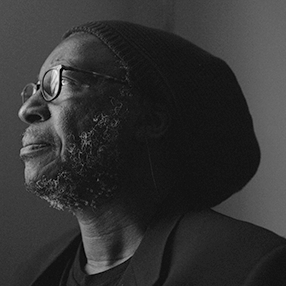Diabolic
"Their colour is a diabolic die."
—Phillis Wheatley
What they say they are
And what they actually do
Is what Phillis overhears.
It’s like she isn’t there.
It’s like she’s a ghost, at arm’s length, hearing
The living curse out the dead—
Which, she’s been led to believe
No decent person does in a church.
How they say they love her
And how they look at her
Is what Phillis observes;
Like she’s the hole in the pocket
After the money rolls out.
God loves everybody—even the sinner,
(they say)
Even a mangy hound can rely
On a scrap of meat, scraped off the plate
(they say).
What they testify
And what they whisper in earshot
Is as dark as her skin, whistled from opposite sides
Of a mouth.
Is she the bible’s fine print?
Copyright © 2020 by Cornelius Eady. Originally published in Poem-a-Day on July 15, 2020 by the Academy of American Poets.
“‘Diabolic’ is part of a cycle of poems I’m writing on Phillis Wheatley, concerning the complication of the slave learning their captor’s language. The quote at the top of the poem is a line from Wheatley’s poem ‘On Being Brought from Africa to America.’ In it, Wheatley challenges a common dilemma, which is still a problem today—the distance between white, ‘progressive’ Christian beliefs about race, and resistance by those same progressives to actively examine those problems in their own house. ‘Diabolic’ is such a hurtful term, a term of difference and distancing—I wonder how many times she heard it, while she sat close by in a room, and my poem tries to imagine how she turned that word in her head—a child of God, yet always to be considered a devil—certainly, always ‘less than’—before she wrote it down in one of the most American poems I think we have.”
—Cornelius Eady

